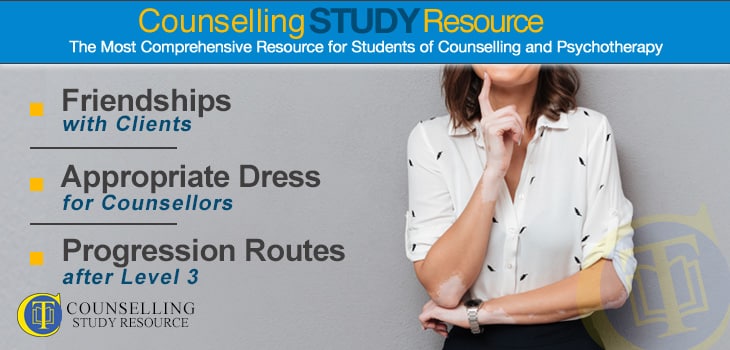Friendships with Clients (starts at 2.02 mins)
While the answer to the first is a definite no (you’d need to signpost them to other counsellors), the answer to the second may be less clear-cut.
The BACP’s guidance on this (paragraph 37) states:
‘We will avoid continuing or resuming any relationships with former clients that could harm the client or damage any benefits from the therapeutic work undertaken. We recognise that conflicts of interest and issues of power or dependence may continue after our working relationship with a client, supervisee or trainee has formally ended.’
While Rory and Ken have managed to navigate a boundaried relationship as friends and colleagues after initially meeting as teacher and student, it is much more perilous to become friends with a former client.
Rory explains that this relates to Petruska Clarkson’s concept of the reparative relationship (one aspect of her five-relationship model) being an important element in counselling.
In this relationship, the therapist serves as a parent figure, providing a solidity and stability that allows the client to experience personal growth safely.
The resultant power imbalance (which tends to be present to some extent: however much we try to equalise this, it can only really be minimised) could be really confusing in a subsequent friendship.
Even more importantly, seeing the therapist as a full person outside their professional role (where, for example, there may well be moments of lapse in demonstrating the facilitative conditions) could erode the work achieved in counselling. It is this risk that the BACP guidance refers to.
If you feel tempted to become friends with a former client, ask yourself what in you would be satisfied by doing so.
As therapists, we may have to sacrifice our own wishes in order to maintain their progress. Above all, do take the issue to supervision (and possibly also to personal therapy).



